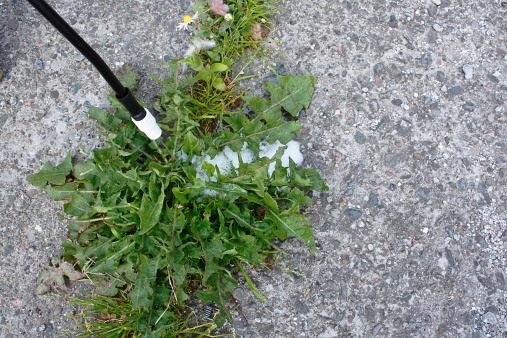Local Businesses

As a local business in Weld County, you can implement simple and effective good housekeeping practices that will help prevent stormwater pollution while providing a safer working environment for your employees and avoiding potentially costly enforcement actions.
Businesses of all kinds have the potential to impact stormwater quality. Many commercial and industrial businesses store materials outside, and commercial buildings typically have dumpsters and landscaping. By learning about stormwater contaminants, you can decide how best to prevent pollution from your place of business.
If your business generates hazardous wastes, you may qualify for the Weld County Business Hazardous Waste program, which provides an affordable option for disposing of specific wastes. The program accepts wastes from Very Small Quantity Generators (VSGQ), and it provides resources for Small Quantity Generators (SQG) and Large Quantity Generators (LQG). Visit the Weld County Business Hazardous Waste Disposal website for more information.
Effective Stormwater Tips for Your Business:
Cover outdoor dumpsters and storage containers

Place dumpsters away from storm drains and make sure they have a functioning plug. Closing dumpster lids prevents rain water from collecting and creating 'dumpster juice'. Also, protect outdoor chemicals from rain and snow. Secondary containment is one of the safest ways to keep hazardous materials out of the stormwater system.
Save on landscaping by using less

Use pesticides, herbicides and fertilizers only when needed. Be sure to follow the manufacturer’s application recommendations; you may find that you need less than expected. Also, adjust irrigation systems so that over-watering is prevented and runoff is minimized. In the long run, this small adjustment can lead to significant savings on your water bill.
Reduce nutrients in the water

Nutrients in the form of nitrogen and phosphorus can contribute to an overgrowth of aquatic plants and algae. The bloom of plants and algae (aka pond scum) creates an eyesore as well as harms the aquatic life below. Nutrients can be controlled by not over applying fertilizer and not applying fertilizer before a big storm. Talk to your landscaper to come up with a plan that is good for your business as well as the water.
Spill prevention and cleanup

Businesses with good housekeeping practices are likely to run more efficiently since preventing a spill takes less time than cleaning one up. If you do experience a spill, use absorbent materials to it clean up rather than hosing down the area. All spills should be cleaned immediately to minimize safety hazards and prevent pollutants from reaching the storm drainage system. Call 911 for emergencies.
Proper hazardous waste disposal

Many commercial and industrial products are considered hazardous and should not be thrown in the trash. The improper disposal of hazardous waste can cause serious water quality impacts. Some common products that are considered hazardous include vehicle fluids, batteries, fluorescent light bulbs, cleaning chemicals, flammable liquids, pesticides, herbicides, paints, and adhesives.
Weld County currently offers a fee based waste disposal program for Conditionally Exempt Small Quantity Generators (CESQG) at the Weld County Household Hazardous Waste Facility in Greeley.